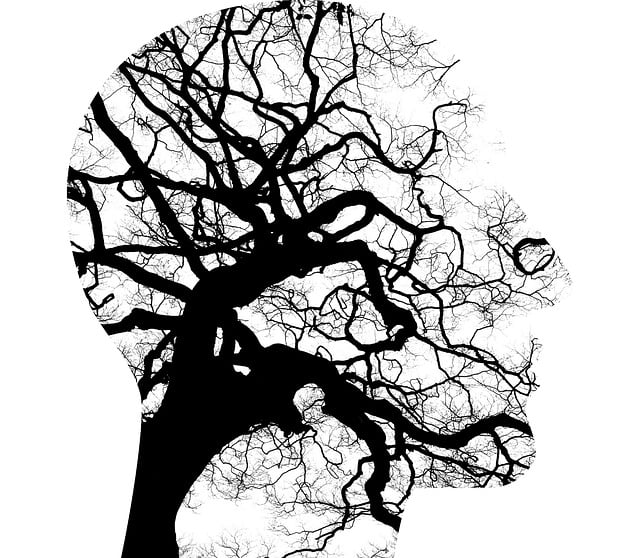Highlands Ranch Pain Management Therapy prioritizes crisis intervention as a key component of comprehensive mental health support. By swiftly assessing and addressing acute stress, trauma, substance abuse, or severe depression, this approach stabilizes individuals and connects them with longer-term care. Utilizing evidence-based techniques like CBT and mindfulness, the therapy offers tailored solutions, including self-care routines and coping mechanisms, to manage pain and co-occurring mental health issues holistically. Cultural sensitivity ensures inclusive care, fostering resilience against pain and stigma reduction.
In Highlands Ranch, crisis intervention strategies are vital for effective mental health support. This article guides readers through essential aspects of crisis management, focusing on both understanding and implementing practical solutions. We explore how recognizing signs of distress can lead to timely interventions, with a specific emphasis on evidence-based techniques tailored for Highlands Ranch Pain Management Therapy. By delving into these strategies, we aim to enhance the community’s ability to navigate crises effectively.
- Understanding Crisis Intervention: A Cornerstone of Mental Health Support in Highlands Ranch
- Assessing the Situation: Identifying Signs and Responding Effectively to Crises
- Implementing Evidence-Based Strategies: Techniques for Highland Ranch Pain Management Therapy
Understanding Crisis Intervention: A Cornerstone of Mental Health Support in Highlands Ranch

Crisis intervention is a vital component of mental health support, offering immediate and targeted assistance during moments of intense distress or crisis. In Highlands Ranch, where access to specialized care is crucial, understanding this approach can significantly impact an individual’s well-being. Crisis intervention strategies are designed to stabilize individuals facing various challenges, including but not limited to acute stress, trauma, substance abuse crises, or severe depression. The primary goal is to provide a safe space, offer immediate relief from distressing symptoms, and connect individuals with longer-term support systems for comprehensive healing.
In the context of Highlands Ranch Pain Management Therapy, crisis intervention plays a pivotal role in addressing co-occurring mental health issues that often accompany chronic pain. Compassion cultivation practices, a key aspect of such interventions, foster emotional intelligence by encouraging individuals to recognize and manage their emotions effectively. This skill is particularly beneficial for those dealing with depression prevention, as it enables them to navigate challenging situations with increased resilience. By incorporating these strategies, mental health professionals in Highlands Ranch can ensure that individuals receive holistic care tailored to their unique needs.
Assessing the Situation: Identifying Signs and Responding Effectively to Crises

In high-stress situations, swift and effective crisis intervention is paramount. Assessing the situation accurately is the first step in delivering appropriate support. At Highlands Ranch Pain Management Therapy, we understand that recognizing subtle signs of distress can make a significant difference. Mental health professionals must be adept at identifying risk factors and warning signals, such as sudden changes in behavior or severe anxiety symptoms, to provide timely intervention. A comprehensive Risk Assessment is crucial here, enabling practitioners to tailor their responses to individual needs.
By quickly recognizing the severity of the crisis and understanding the person’s unique circumstances, professionals can offer effective solutions. This might include helping individuals develop a robust self-care routine for better mental health, promoting healthy coping mechanisms, or providing anxiety relief techniques. Prompt action and a tailored approach are key to successful crisis intervention, ensuring that those in need receive the support they require during challenging times.
Implementing Evidence-Based Strategies: Techniques for Highland Ranch Pain Management Therapy

In implementing crisis intervention strategies for Highlands Ranch Pain Management Therapy, it’s paramount to rely on evidence-based techniques. These methods, backed by rigorous research, have proven effective in addressing acute pain and its associated mental health challenges. By integrating practices such as cognitive-behavioral therapy (CBT), mindfulness meditation, and physical rehabilitation tailored to individual needs, therapists can foster inner strength development. This holistic approach not only helps patients manage their pain but also promotes resilience, especially in navigating the complex landscape of mental illness stigma reduction efforts.
Cultural sensitivity in mental healthcare practice is a critical component of this strategy. Understanding and respecting diverse cultural backgrounds ensures that interventions are inclusive and relevant to every patient. Through culturally competent care, therapists can create a safe space for individuals to express their unique experiences with pain, enhancing the overall effectiveness of Highlands Ranch Pain Management Therapy.
Crisis intervention strategies are vital tools in providing effective mental health support in Highlands Ranch. By understanding the cornerstone principles outlined in this article, including assessing situations, identifying signs of distress, and implementing evidence-based techniques like those used in Highlands Ranch Pain Management Therapy, we can foster a more resilient community. These strategies empower us to navigate crises responsibly and offer much-needed assistance to those facing challenges.














